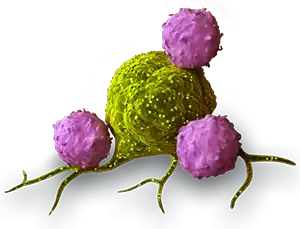A Beacon of Hope and Action
Cancer Control Month is a beacon of hope and action in the relentless fight against cancer each April. This pivotal observance not only heightens awareness but also underscores the critical importance of proactive prevention strategies. It is a time when the global community unites, showcasing the power of knowledge and early intervention in altering the course of this formidable disease. As we delve deeper into the significance of this month, we uncover stories of resilience, breakthroughs in medical science, and the collective efforts that fuel our pursuit of a cancer-free future. Join us in this exploration of Cancer Control Month, where every story, statistic, and stride forward brings us closer to turning the tide in the ongoing battle against one of humanity's most persistent adversaries. This is more than just a month on the calendar; it's a rallying cry for action, a testament to human determination, and a journey of hope and healing that beckons us all.
Understanding Cancer Control Month
Origin and Significance: Cancer Control Month was established to highlight the critical issue of cancer, a leading cause of death worldwide. The observance aims to educate the public about various aspects of cancer, including risk factors, prevention methods, advancements in treatments, and support for those affected. Initiated in the mid-20th century, the month-long observance has grown to become a global event, drawing attention to the multifaceted approach required to combat cancer effectively.
Public Awareness and Education: During Cancer Control Month, health organizations, governments, and communities engage in extensive campaigns to disseminate cancer information. These efforts are crucial in debunking myths, spreading knowledge about early warning signs, and emphasizing the importance of regular screenings. Public awareness campaigns often include informational seminars, free screening events, and educational materials distributed through various media channels.
 Cancer Prevention Strategies
Cancer Prevention Strategies
Lifestyle Modifications: Prevention plays a key role in cancer control. Adopting a healthy lifestyle, such as maintaining a balanced diet rich in fruits and vegetables, engaging in regular physical activity, avoiding tobacco, and limiting alcohol consumption, can significantly reduce the risk of many types of cancer. According to the American Cancer Society, nearly one-third of cancer deaths in the United States are linked to diet and physical inactivity, highlighting the profound impact of lifestyle choices.
Vaccinations and Screenings: Vaccines, like those for Human Papillomavirus (HPV) and Hepatitis B, can prevent cancers associated with these viruses. Regular screenings for cancers such as breast, cervical, and colorectal cancers enable early detection, increasing the chances of successful treatment. The Centers for Disease Control and Prevention (CDC) emphasizes the importance of these preventative measures in reducing the overall cancer burden.
Advances in Cancer Treatment
Innovative Therapies: The field of oncology has seen remarkable advancements in treatments, including targeted therapies, immunotherapies, and personalized medicine. These treatments offer hope for improved outcomes and quality of life for cancer patients. Targeted therapies, for instance, focus on specific molecules involved in cancer growth, while immunotherapies boost the body's immune system to fight cancer more effectively.
Supportive Care: Beyond medical treatment, supportive care in the form of counseling, pain management, and palliative care is vital for patients and their families, addressing the physical, emotional, and psychological impacts of cancer. Supportive care services ensure that patients receive comprehensive care that enhances their quality of life during and after treatment.
The Role of Research and Collaboration
Ongoing Research: Continuous research is essential in understanding the mechanisms of cancer, developing new treatments, and improving existing ones. Funding and support for cancer research are paramount. Institutions like the National Cancer Institute (NCI) play a crucial role in advancing cancer research and fostering innovation.
Global Collaboration: Cancer is a global challenge that requires international collaboration. Sharing knowledge, resources, and best practices across borders can accelerate progress in cancer control. Organizations such as the World Health Organization (WHO) facilitate global partnerships aimed at reducing cancer incidence and mortality worldwide.
Community Involvement and Support
Fundraising and Volunteering: Community events like walks, runs, and fundraisers significantly support cancer research and patient care. Volunteering for cancer-related organizations is another way to contribute. Events like Relay For Life and Stand Up To Cancer mobilize communities to raise funds and awareness for cancer research and support services.
Support Networks: Support groups and networks provide a platform for cancer patients, survivors, and their families to share experiences, offer support, and gain strength from one another. These networks foster a sense of community and empowerment, helping individuals navigate the challenges of cancer with resilience and hope.
 Cancer Control Month is a time for reflection, action, and hope. It brings together individuals, communities, and nations in a unified effort to fight cancer. By raising awareness, promoting prevention, supporting research, and fostering a supportive environment for those affected, we move closer to a world where cancer can be effectively controlled and eventually cured. As we commemorate this month, let us honor the courage of those battling cancer, celebrate the advancements in medical science, and reaffirm our commitment to a future free from cancer's grasp.
Cancer Control Month is a time for reflection, action, and hope. It brings together individuals, communities, and nations in a unified effort to fight cancer. By raising awareness, promoting prevention, supporting research, and fostering a supportive environment for those affected, we move closer to a world where cancer can be effectively controlled and eventually cured. As we commemorate this month, let us honor the courage of those battling cancer, celebrate the advancements in medical science, and reaffirm our commitment to a future free from cancer's grasp.
Please Share our Content






 Cancer Prevention Strategies
Cancer Prevention Strategies Cancer Control Month is a time for reflection, action, and hope. It brings together individuals, communities, and nations in a unified effort to fight cancer. By raising awareness, promoting prevention, supporting research, and fostering a supportive environment for those affected, we move closer to a world where cancer can be effectively controlled and eventually cured. As we commemorate this month, let us honor the courage of those battling cancer, celebrate the advancements in medical science, and reaffirm our commitment to a future free from cancer's grasp.
Cancer Control Month is a time for reflection, action, and hope. It brings together individuals, communities, and nations in a unified effort to fight cancer. By raising awareness, promoting prevention, supporting research, and fostering a supportive environment for those affected, we move closer to a world where cancer can be effectively controlled and eventually cured. As we commemorate this month, let us honor the courage of those battling cancer, celebrate the advancements in medical science, and reaffirm our commitment to a future free from cancer's grasp.








 "Sláinte!" is a traditional Irish expression used as a toast, equivalent to "Cheers!" in English.
"Sláinte!" is a traditional Irish expression used as a toast, equivalent to "Cheers!" in English.